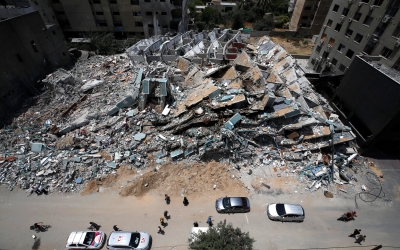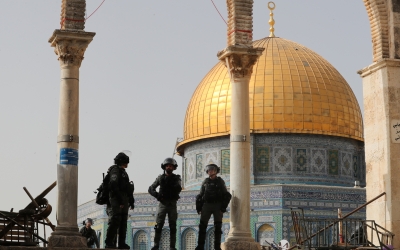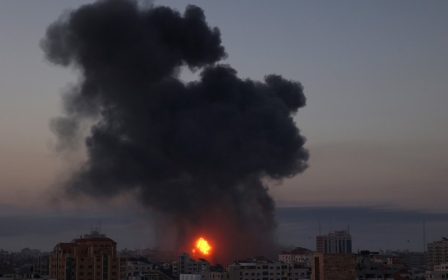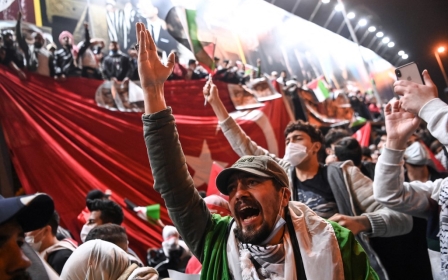Israel-Palestine: ICC prosecutor says possible 'war crimes' over escalating violence

The International Criminal Court (ICC) is concerned about escalating violence between Israel and the Palestinians and the possibility that war crimes are being committed there, its prosecutor Fatou Bensouda said on Wednesday.
"I note with great concern the escalation of violence in the West Bank, including East Jerusalem, as well as in and around Gaza, and the possible commission of crimes under the Rome Statute," Bensouda wrote on Twitter.
New MEE newsletter: Jerusalem Dispatch
Sign up to get the latest insights and analysis on Israel-Palestine, alongside Turkey Unpacked and other MEE newsletters
Hostilities between Israel and Hamas escalated on Wednesday, with at least 35 killed in Gaza and five in Israel so far in the most intensive aerial exchanges for years.
The ICC prosecutor in March announced an official investigation into previous possible war crimes committed in the occupied Palestinian Territories.
Bensouda, who will be replaced by British prosecutor Karim Khan next month, said in December 2019 that war crimes had been or were being committed in the West Bank and Gaza Strip.
She named both the Israeli army and armed Palestinian groups such as Hamas as possible perpetrators.
"My office will continue to monitor developments on the ground and will factor any matter that falls within its jurisdiction," Bensouda said on Wednesday.
Sites of cultural significance
Established by the Rome Statute in 1998, the ICC is a court of last resort to prosecute war crimes, crimes against humanity and genocide when a country is unable or unwilling to do so.
Palestine has signed the Rome Statute. The Israeli government also signed up, but then decided it did not wish to be a state party, and denies the ICC has any right to investigate alleged crimes it has committed.
There has been consideration given to whether attacks by Israeli security forces on al-Aqsa Mosque could constitute a war crime.
Attacks on cultural sites during armed conflicts are considered to be a war crime under a number of international laws and treaties.
In addition to the Rome Statute, the 1954 Hague Convention - the first international treaty focusing entirely on the protection of sites of cultural significance during armed conflict - obliges occupying forces to protect cultural heritage.
The convention - which has been signed by Israel - is intended to protect culturally significant sites from destruction, looting or unnecessary military use.
Underpinning the convention is the principle that "damage to cultural property belonging to any people whatsoever means damage to the cultural heritage of all mankind".
The convention has become part of international customary law, meaning that its provisions are binding on all parties to any conflict, but no national government has ever been prosecuted for breaching it.
Middle East Eye delivers independent and unrivalled coverage and analysis of the Middle East, North Africa and beyond. To learn more about republishing this content and the associated fees, please fill out this form. More about MEE can be found here.






